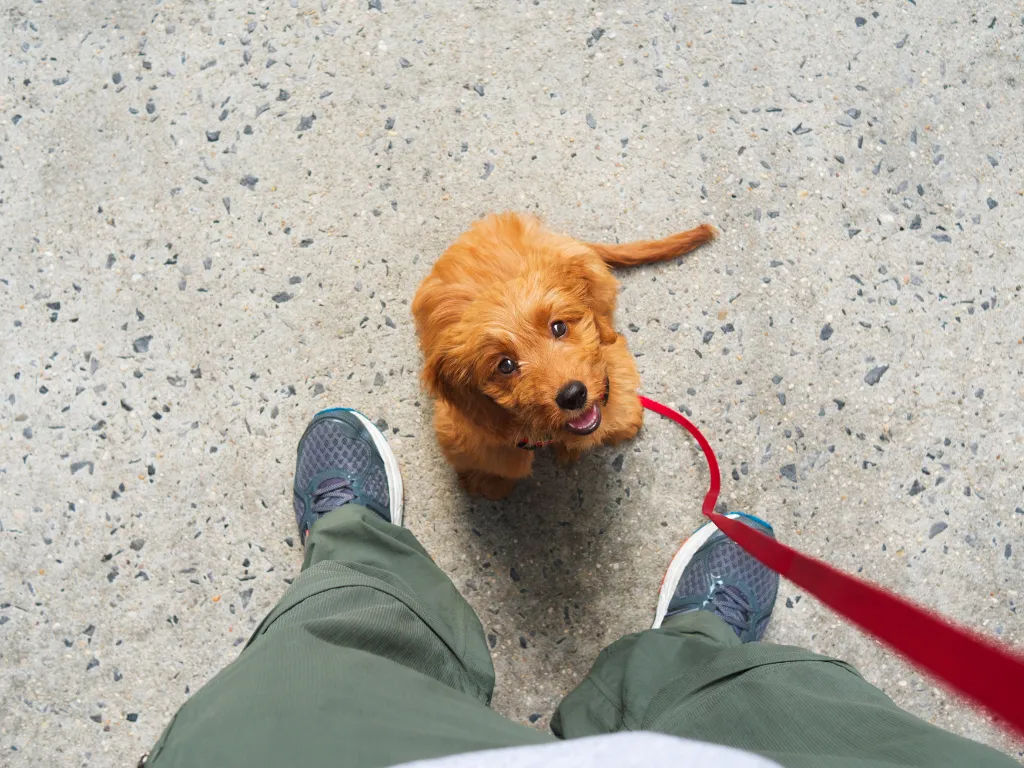Raising a Well-Behaved Pup: Your Guide to Preventing Bad Habits Early On in Northwest Arkansas
There’s a special kind of thrill in bringing a new puppy home. Maybe you’re strolling the Bentonville trails or sitting in your Springdale backyard, watching your pup bounce through the grass with clumsy enthusiasm. Her nose twitches at every smell, her paws scramble over every leaf, and her eyes light up with curiosity. In these moments, you can almost see the years of adventures ahead. But alongside the joy comes an important responsibility: shaping habits now so they don’t become big challenges later.

The Early Impact of Puppy Training
Why does early training matter so much? Puppies go through what behaviorists call a critical socialization period between 3 and 17 weeks of age. During this window, their brains are wired to absorb new experiences like sponges, every sound, sight, and interaction helps shape their understanding of the world. A pup who learns calmly about bicycles at Lake Fayetteville, for example, is far less likely to bark anxiously at cyclists later in life.
Science also shows that puppies’ brains have remarkable neuroplasticity, meaning they can form and adjust neural pathways quickly. This makes it easier to teach new skills but also means bad habits can become ingrained if left unchecked. Early guidance creates healthier, longer-lasting behaviors.
From a historical perspective, dogs evolved from wolves who lived in highly structured packs. Young wolves learned survival and cooperation by mimicking the adults around them. Even though your puppy isn’t hunting elk in Rogers, the instinct to follow rules and look for leadership is still baked in. By providing clear, consistent structure, you fulfill that evolutionary need and give your pup a sense of safety.
Pup-Proofing Your Northwest Arkansas Home
Here are some practical, local strategies to prevent bad habits before they start:
- Establish a Routine: Dogs crave predictability. Feeding, potty breaks, and walks should happen around the same times each day. Think of it like a school schedule — structure reduces stress and helps prevent accidents or destructive behavior.
- Socialize Early and Often: Head to dog-friendly spots like the Razorback Greenway or Lake Fayetteville. Introduce your puppy to people with hats, kids on bikes, and other dogs. Keep it positive and gradual, so she builds confidence instead of fear.
- Start Basic Training: Begin with simple commands such as sit, stay, and come. Use short, fun sessions (5–10 minutes) to match her attention span. Practicing at home in Springdale and then reinforcing at a park in Rogers helps generalize the behavior.
- Promote Positive Reinforcement: Reward what you want to see repeated, whether that’s calm behavior at the door or gentle play. A treat, praise, or a quick game of tug can turn a good choice into a habit.
- Use Safe Outlets for Energy: Puppies often chew or dig when bored. Provide puzzle toys, chew bones, or a safe digging spot in your yard. Meeting their needs proactively keeps bad habits from forming.
Surprising Things to Know About Puppy Training
Puppy training comes with plenty of fascinating twists. Here are some fun facts to keep in mind:
- Puppies have short attention spans. About 5 minutes for every month of age. Keep sessions playful and brief.
- Dogs don’t naturally understand pointing. It’s a learned skill from watching humans, which makes it a neat example of cross-species communication.
- Praise often beats treats. Studies show many dogs prefer a heartfelt “good girl!” and a pat over food rewards.
- Service dogs start training early. Even future guide dogs or therapy dogs spend puppyhood mastering good habits like calm walking and ignoring distractions.
- Breed personalities matter. Border Collies tend to soak up commands quickly, while Huskies may challenge you with independence. Knowing your pup’s tendencies helps you tailor your approach.
- Old dogs can learn too. Neuroplasticity decreases with age, but consistency and positive reinforcement can still reshape habits well into adulthood.
Recognizing When Your Puppy Needs Extra Help
Even with consistent effort, some pups develop behaviors that call for professional support. Watch for these red flags:
- Aggression toward people or other dogs: A growl or snap can signal fear or frustration. Early intervention with a trainer prevents escalation.
- Excessive fear or anxiety: If your puppy trembles at new sounds or hides from visitors, she may need gentle desensitization exercises and structured socialization.
- Obsessive behaviors: Constant licking, chewing furniture, or spinning in circles can be signs of stress or unmet needs. Redirect with toys, and consult a vet if it persists.
- Refusal to follow commands: If you’ve been consistent but your pup seems stuck, professional guidance can uncover whether it’s confusion, lack of motivation, or a deeper issue.
The key here is not to panic, every puppy has quirks. But when behaviors start to interfere with daily life, reaching out for help can make the difference between ongoing frustration and a smooth training journey.

Unlock Your Dog’s Potential!
Start your training journey with our FREE ebook, Puppy and Dog Training Basics. Inside, you’ll learn the 4 proven steps to behavior modification. These are simple and effective strategies you can start using today to raise a happier and better-behaved pup.
The Joy of Raising a Well-Behaved Puppy
Every puppy is unique. Some master leash walking in a week, while others take months to stop chewing on shoes. What matters is consistency, patience, and celebrating the little wins along the way. That first “sit” in your living room, the calm greeting on the Bentonville square, or the day she comes running joyfully when called, those milestones are the stepping stones to a lifetime of good habits.
If you're facing challenges with your puppy's behavior, our Northwest Arkansas dog training team is here to help. We’ll give you strategies that make every outing enjoyable for both you and your pup.
We proudly offer dog training services in both Kansas City and Northwest Arkansas, including Bentonville, Fayetteville, and surrounding areas.
Ready to take the next step?
Book your free consultation today and let’s design the perfect plan for your dog.
Step up your dog training game with access to our entire course library and special
rates for one-on-one sessions. Unlock your potential now!
Save More, Learn More, Achieve More!
Please contact us if you have any questions on these tips, [email protected]
